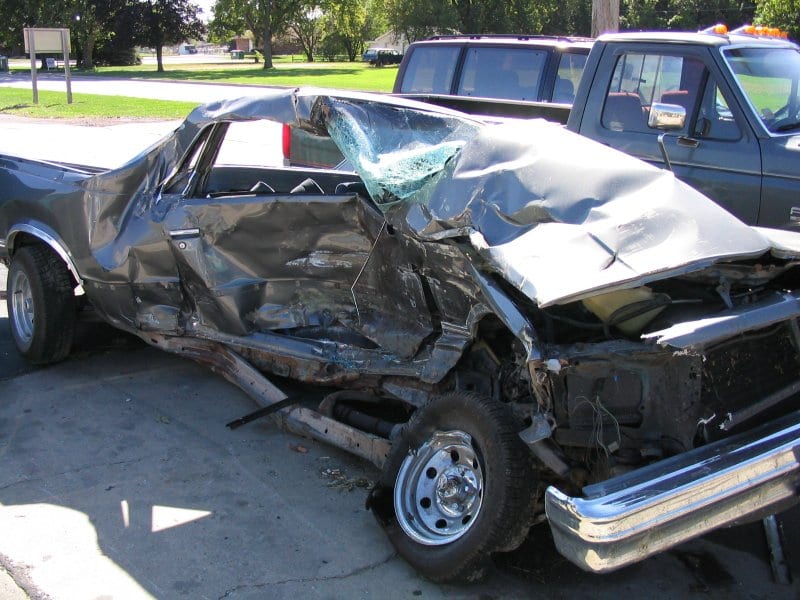Handling a totaled car after an auto accident involves several critical steps, from dealing with insurance claims to considering legal assistance and maintaining your credit.
Experiencing an auto accident that results in your car being totaled can be overwhelming. Knowing what steps to take next can help you navigate this stressful situation more effectively. This guide provides essential information on handling a totaled car, including insights on credit repair for car loans and when to seek an auto accident lawyer.
What Does It Mean When Your Car Is Totaled?
A car is considered “totaled” when the cost of repairs exceeds its market value. Your insurance company often makes this determination after assessing the damages. Understanding this classification is crucial as it influences your next steps, particularly regarding insurance claims and vehicle replacement.
Immediate Steps to Take After the Accident
- Ensure Safety: First and foremost, ensure everyone involved is safe. Call emergency services if there are any injuries.
- Document the Scene: Take photographs and gather details from witnesses. This documentation can be vital for insurance and legal purposes.
- Contact Your Insurance Company: Inform your insurance provider about the accident immediately. Provide them with all necessary documentation and cooperate with their investigation.
Navigating Insurance Claims
Filing a claim with your insurance company is an essential step after your car is totaled. Your insurer will guide you through the process, which typically involves:
- Assessment of Damages: An adjuster will inspect your vehicle to determine the extent of the damages and the cost of repairs.
- Settlement Offer: If your car is deemed totaled, the insurer will offer a payout based on the car’s market value before the accident. Ensure you understand the offer and negotiate if necessary.
Seeking an Auto Accident Lawyer
In some cases, especially if another party’s negligence caused the accident, it may be beneficial to consult an auto accident lawyer. They can assist with:
- Legal Advice: An experienced lawyer can provide guidance on your rights and the best course of action.
- Negotiating Settlements: Lawyers can negotiate with insurance companies on your behalf to ensure you receive fair compensation.
- Handling Disputes: If there are any disputes or if the other party is contesting liability, having a lawyer can help resolve these issues efficiently.
Credit Repair for Car Loans
Managing your credit becomes a priority if your car loan is still active when your vehicle is totaled. Here are steps to take to maintain or repair your credit:
- Pay Off Remaining Loan Amount: Use the insurance payout to settle any remaining balance on your car loan. You must pay the difference out of pocket if the payout doesn’t cover the total amount.
- Check for Errors on Your Credit Report: Review your credit report for any inaccuracies related to the accident or your loan. Dispute any erroneous entries to prevent adverse impacts on your credit score.
- Consider a New Loan Carefully: If you need to finance a new vehicle, shop around for the best rates. Ensure that taking on a new loan won’t overextend your finances and affect your credit adversely.
Contact a professional financial advisor for more detailed advice and personalized financial guidance. One example is Car Credit Doctor, who can provide you with the necessary information and support tailored to your financial needs.
Replacing Your Totaled Vehicle

Once your insurance claim is settled and any remaining loan balances are addressed, you can start looking for a replacement vehicle. Keep the following tips in mind:
- Set a Budget: Determine how much you can afford to spend on a new car, considering the insurance payout and any additional available funds.
- Explore Financing Options: If you need a car loan, compare offers from multiple lenders to secure the best terms.
- Consider New vs. Used: Decide whether a new or used car better fits your needs and budget. Each option has its benefits, so weigh them carefully.
Preventing Future Accidents
While accidents are often unavoidable, taking preventive measures can reduce the risk of future incidents:
- Regular Maintenance: Keep your vehicle well-maintained to ensure it’s in good working condition.
- Safe Driving Practices: Always follow traffic laws, avoid distractions, and drive defensively.
- Insurance Coverage: Ensure you have adequate insurance coverage to protect yourself financially in case of another accident.
Handling a totaled car after an auto accident involves several critical steps, from dealing with insurance claims to considering legal assistance and maintaining your credit. By understanding each aspect and taking proactive measures, you can confidently navigate this challenging situation and prepare for a smoother road ahead.


Join the conversation!